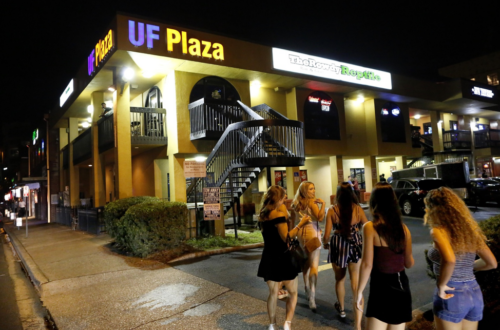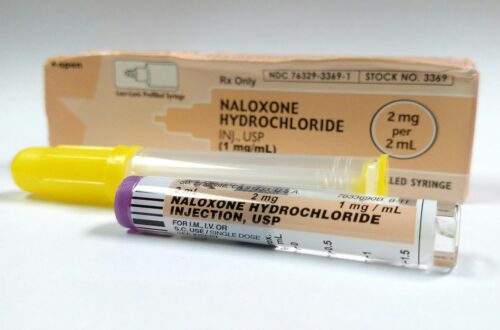The wide array of positions up for grabs during the general election on Nov. 8 can be overwhelming. As a result, the University of Florida Bob Graham Center for Public Service and League of Women Voters hosted a candidate forum on Oct. 9 to inform the general public of where Gainesville candidates stand on crucial issues.
The topics spanned the gamut of healthcare to housing, with an emphasis on local issues in Gainesville and Alachua County. Additionally, the coordinators established the importance of local elections.
Each candidate started with an opening statement, answered pre-written questions and ended with a closing statement. Here’s what the candidates present had to say:
State Representative Districts 21 and 22
Yvonne Hinson, D-District 21
Yvonne Hinson, the District 20 representative for the Florida House of Representatives, started by highlighting her experience in the state House, listing her current committee experience and emphasizing her integrity and respect amongst her colleagues.
Hinson, 52, gave a passionate defense for maintaining Sadowski Funds — funds earmarked toward housing assistance. She noted that current legislation is neglecting housing funds and condemned the corruption and inefficiencies in funding.
“It’s [the Sadowski Funds] being peeled away every day; Sadowski Funds [are] being used to provide [for] a resiliency project for people that live on the coastal fronts. I believe that money should remain where it is,” Hinson said.
Hinson further highlighted the dreary state of the housing crisis in Gainesville and greater Alachua County currently.
Segueing to the next question about how to effectively spend the money allocated in the Inflation Reduction Act toward switching away from fossil fuels, Hinson called for more accountability in Tallahassee, mentioning how her pending bill, the Energy Equity Task Force, would guarantee oversight over where the money is being spent and how it would be spent equitably.
Finally, regarding state intervention in regulating prescription drug prices, Hinson called for a state-based “Medicare for all” proposal that would negotiate drug prices until the federal government decides to intervene.
Brandon Peters, D-District 22
Brandon Peters, a professional mediator, denounced what he considered to be widespread party dogmatism in Tallahassee and branded himself as a man of the people.
Regarding Sadowski Funds, Peters, 55, emphasized the importance of maintaining them and desired to transfer the money toward small businesses. Peters also advocated for robust funding of other housing programs like SAIL and SHIP — state-sponsored programs meant to help low-income people get low-interest loans for housing. Afterwards, he called out his opponent, Chuck Clemons (I), for mismanaging housing funds and claimed that his opponent had stolen millions of dollars from Sadowski Funds while he was in the State House.
Peters also highlighted the importance of going after big energy lobbyists and enacting campaign reform.
“We need to make sure that we have legislators in Tallahassee who are responsive to the needs of their constituents, whom they claim to serve, and not responsive to large outfits like Tampa Electric Company, Duke Energy, NextEra Energy,” Peters said
Lastly, Peters mentioned the need for greater systemic changes for prescription drugs, advocating for Medicaid expansion to cover drug and appointment prices.
“If we brought Medicaid expansion into the state of Florida, we would be able to have rural healthcare. Right now, in my county, Levy County, we don’t even have an emergency room. People die because of that,” Peters said.
8th Judicial Circuit Judge Group 12
Sean Brewer
Sean Brewer, a longtime prosecutor, mentioned his experience with pursuing domestic violence abusers and child sex abusers. Brewer, 51, also noted his experience with prosecuting high-level murder cases.
Although a judge cannot have an explicitly partisan position, they can engage with the public through speaking events, field trips and public education campaigns, Brewer said.
On the topic of hate speech, Brewer stated that the First Amendment protected all non-threatening speech; however, he then clarified that such protection does not apply to incendiary speech, i.e., speech that leads to a crime. He nonetheless highlighted how he has prosecuted a wide range of hate crimes during his tenure as a prosecutor.
AuBroncee Martin
AuBroncee Martin, a public defender of 24 years, called for more diversity in the judicial sphere and emphasized the need for transparency to regain community trust. Martin agreed with Brewer on the idea that the community has to be kept informed about the law.
“It is absolutely essential to the general public so that the general public understands what is going on at the courthouse and has some faith in what is going on at the courthouse,” Martin said.
Martin further emphasized that the presence of gray areas in the legal field meant that a future judge would need an empathetic, diverse approach when dealing with problems. He sums up his mantra as “must follow the law, then look at the facts.”
County Commission Districts 1, 2 & 4
Ken Cornell, District 4
Ken Cornell sympathized with the idea of single-member districts but highlighted that most issues are county-wide rather than localized. Cornell said he serves everyone in the county rather than only his own district and called for cross-district cooperation.
“As your representative, no matter where you live in Alachua County, I represent you,” Cornell said.
When it comes to the affordable housing issue, Cornell said that the problem was not to be found in the affordable housing itself but in its distribution. Cornell wants to relocate affordable housing complexes to avoid dense concentration within the city limits, he said.
Finally, Cornell responded to the question of whether to keep utility provisions within the urban cluster by stating that one must determine the needs of the communities within the urban cluster before looking outwards. He said he was open to providing them to external communities if there were enough capacity.
Marihelen Wheeler, District 2
Marihelen Wheeler, a current councilmember chair for District 2, was vehemently opposed to single-member districts, emphasizing that she serves the whole county and arguing that single-member districts would work to only sow division. Wheeler, 71, said she believes single-member districting would increase competition for resources.
Wheeler concluded her argument by stating, “The whole idea of being able to work the whole county is a matter of developing the county as a whole, instead of one section at a time.”
Regarding affordable housing, Wheeler believes housing is a Zeitgeist in Gainesville. In addition, she explains the need to inquire into historical housing disparities to develop a better understanding of the provenance of the housing crisis.
Wheeler’s stance on expanding utility provisions outwards is unequivocal; she said she believes we should expand utility provisions so that the city can better accommodate the rapid population growth in the outlying areas.
Ed Braddy, District 2
Ed Braddy, said he’s fully onboard with single-member districts. Braddy, 50, argued the current model disregards the interests of peripheral communities and that single-district modeling already works well in other races.
“[Alachua County, High Springs and Micanopy] feel like they are either ignored or bullied, and citizens in a lot of East Gainesville still feel ignored,” he said.
On the topic of affordable housing, Braddy argued that the local government should not force certain types of housing structures on communities. Furthermore, he claimed affordable housing was expensive to develop, and he instead called for a change in land development codes.
Raemi Eagle-Glenn, District 1
Raemi Eagle-Glenn, the current commissioner for District 1, opened up with a fiery speech on the need to fund law enforcement and invest in Gainesville infrastructure. Eagle-Glenn, 42, argued that single-member districts would solve the problem of neglect that, she claims, has been plaguing local communities in Alachua County.
On affordable housing, Eagle-Glenn highlighted the decrease in housing values resulting from placing affordable housing complexes in wealthier neighborhoods.
Mary Alford, District 1
Mary Alford, an environmental engineer and business owner advocated for more efficient and equitable initiatives.
Alford, 62, argued against single-member districts, highlighting that they would create competition for resources and exacerbate wealth inequality in the county. She further emphasized her desire to fight for everyone rather than the people of a single district.
As someone who worked in the affordable housing sector, Alford advocated for an expansion of affordable housing projects and rejected initiatives to demolish the ones we have now. However, she noted that smart distribution was necessary to avoid overburdening neighborhoods.
Gainesville Mayor
Harvey Ward
Harvey Ward, the Gainesville District 2 city commissioner, focused on the need to resolve infrastructural problems in the city and advocated for a jobs program for lower-income people. Ward, 41, advocated using federal funds to expand the electric vehicle system for public transportation.
“They’ve got to begin paying everybody who works on this campus whether they sweep the floors, or whatever this job is a living wage.” Ward said. “We do that, and we solve poverty in this county.”
He said he takes an optimistic and compassionate mayoral approach and called for cooperation among different Gainesville agencies.
Ed Bielarski
Ed Bielarski, the former general manager of Gainesville Regional Utilities, championed job growth and greater investments in renewable energy initiatives.
Bielarski, 65, said he wants to replace coal and gas plants with renewable energy sources and called for greater inter-agency and private-public cooperation to tackle climate change issues. Furthermore, Bielarski called for an expansion of the public transportation system and more incentives for manufacturing.
City Commission Districts 2 & 3
Casey Willits, District 3
Casey Willits, a geographer by occupation, called for local energy production and desires to work with larger vehicles to mitigate the impacts of vehicular emissions.
Willits, 40, warned Gainesville Regional Utilities would have to plan for the increased costs and decreased returns; nevertheless, he was optimistic about their ability to adapt.
DeJeon Cain, District 3
DeJeon Cain, a union head and activist, emphasized the need to expand affordable housing and decrease utility bills. Cain, 38, called for greater inclusion of civil society organizations to discuss future local policy and desired to bring the community to the forefront.
He agreed with the calls to expand the electric vehicle system in public transportation but said the city should consider other options.
James Ingle, District 2
James Ingle, an electrician by trade, called for a realistic expansion of the city power grids to accommodate for increased demand. He said he wants more training on how to handle power grids.
Ingle, 44, stated that the expansion of the electric vehicle system in public transportation was now doable. However, he argued that more charging stations and better infrastructure were needed.
Ed Book, District 2
Ed Book, the chief of police at Santa Fe College, highlighted the importance of Santa Fe College in educating immigrant communities in Gainesville and called for the expansion of the English to Speakers of Other Languages program.
Like his colleagues, Book, 58, called for an expansion of the electric vehicle system but warned of the need for better budgeting on the part of GRU.
All of these candidates will appear on the general election ballot on Nov. 8, and their fates lie in the hands of Gainesville and Alachua County voters.
Check out other recent articles from the Florida Political Review here.
Featured image: The Candidates for County Commission at the League of Women Voters and Bob Graham Center for Public Service candidate forum. (From Twitter/@Grahamcenter)
Update: October 30, 2022
This article was updated to specify that Bielarski was general manager of Gainesville Regional Utilities.





